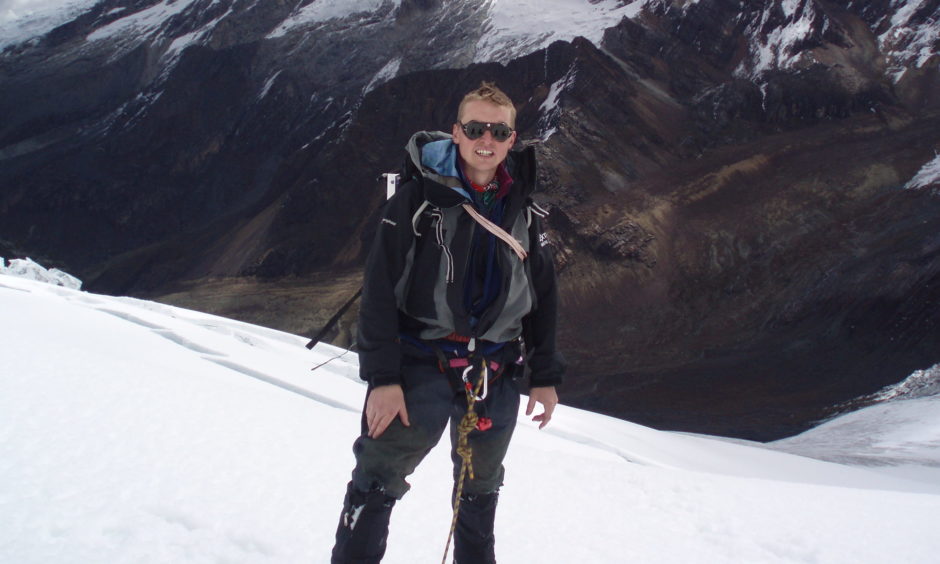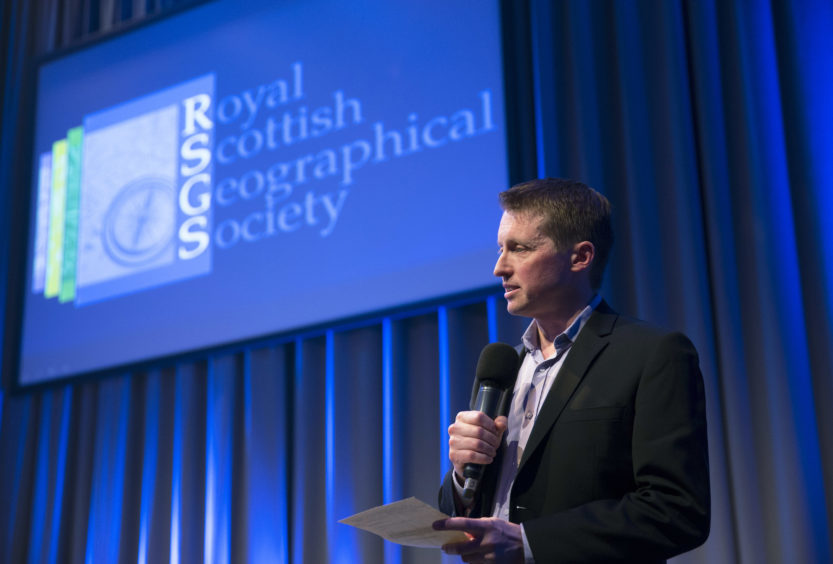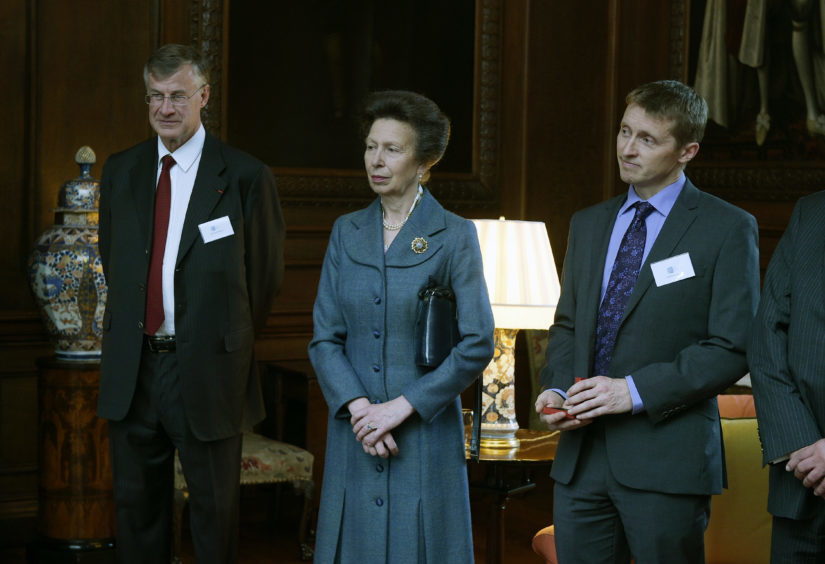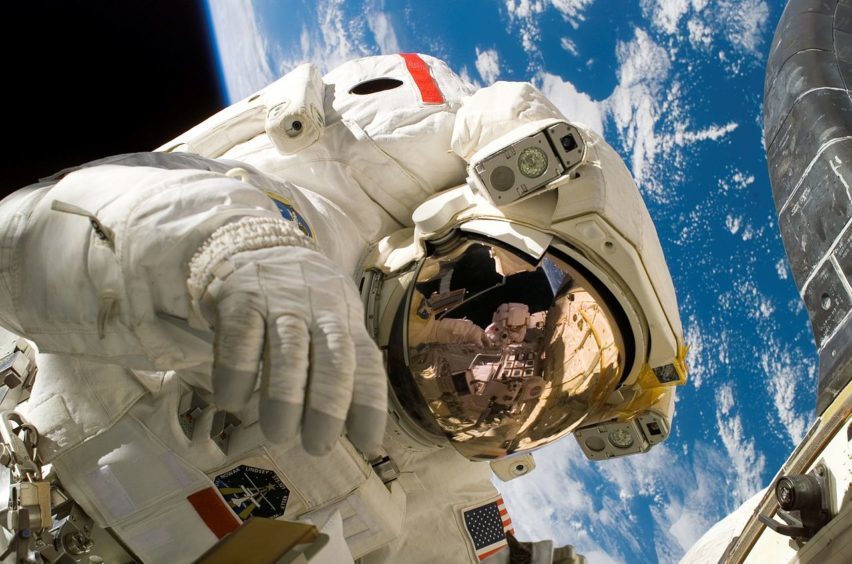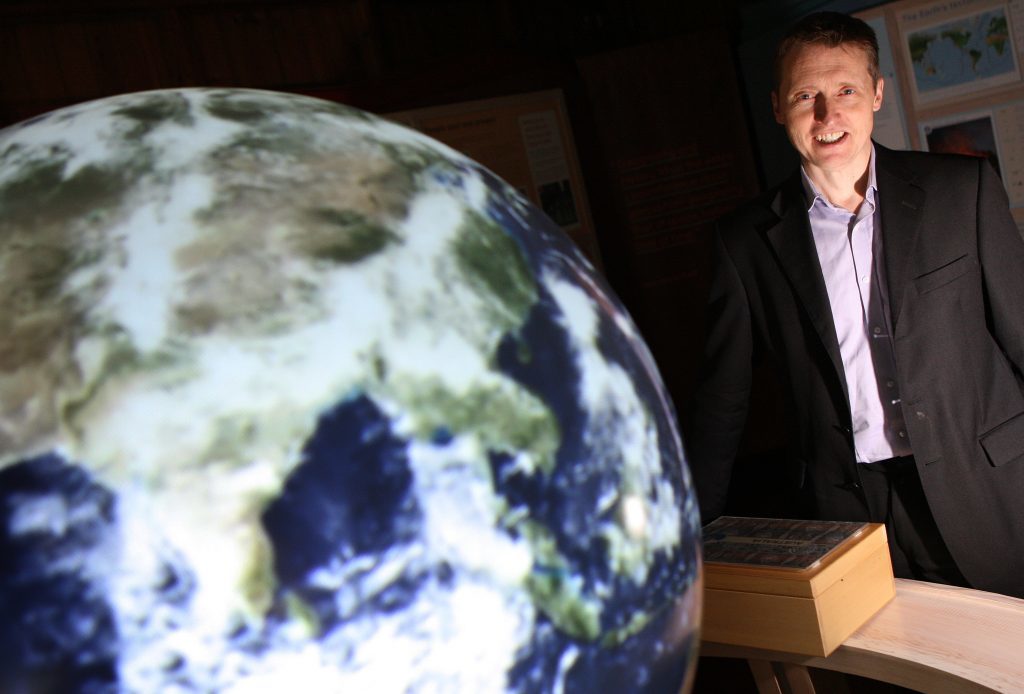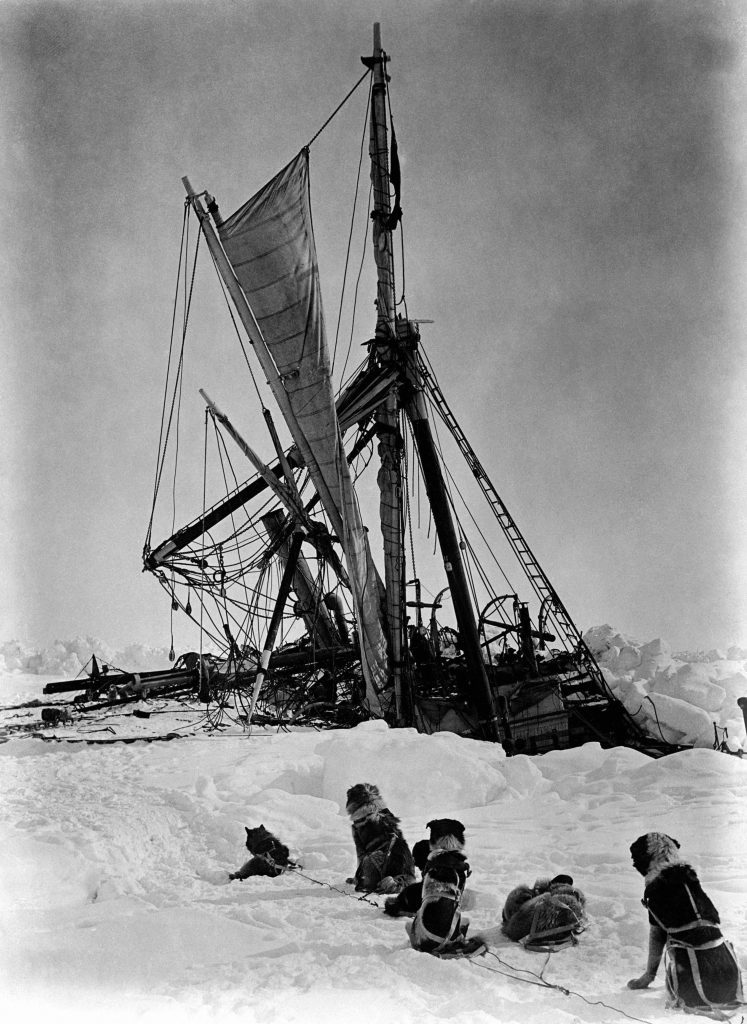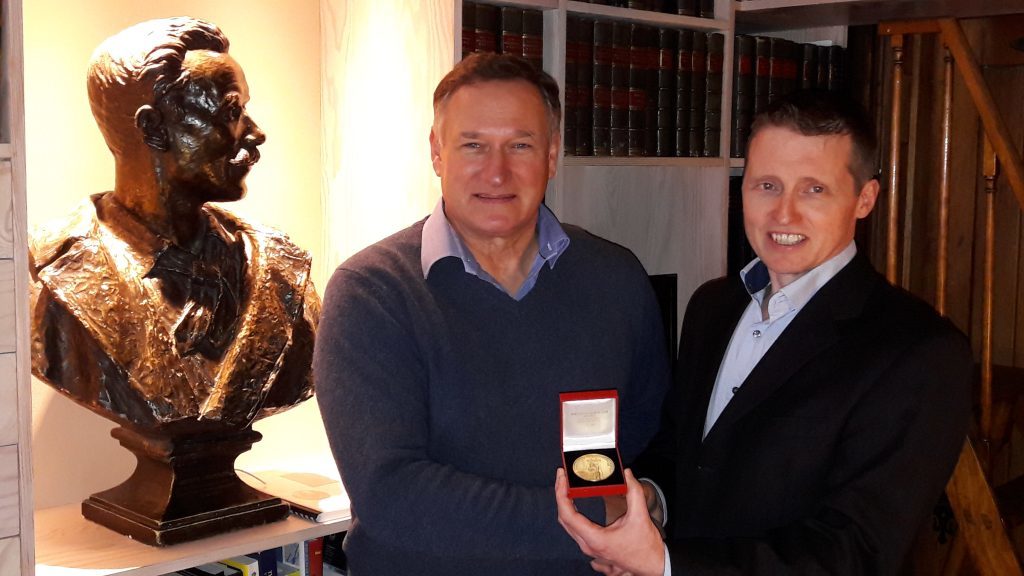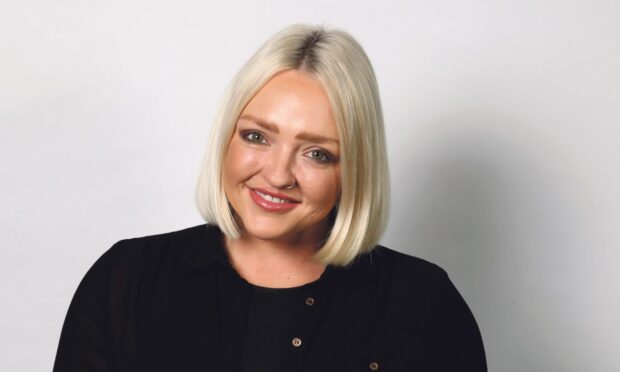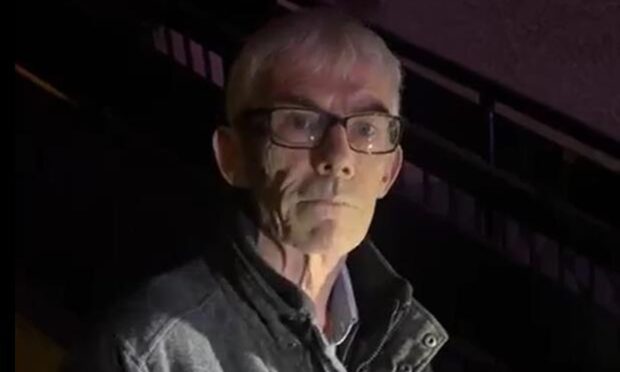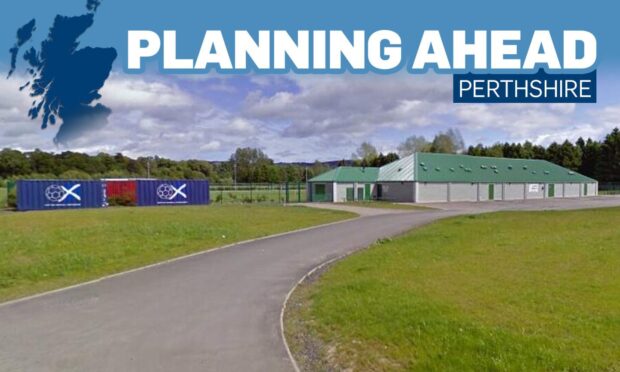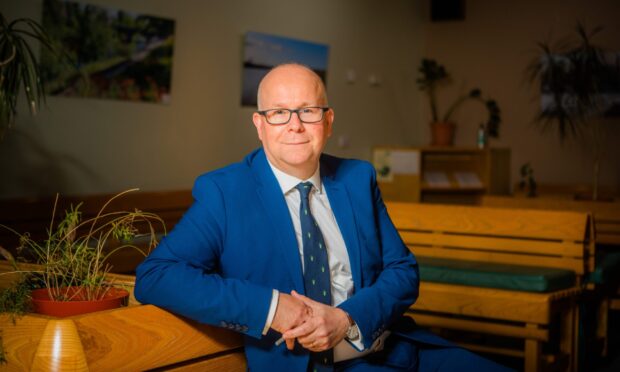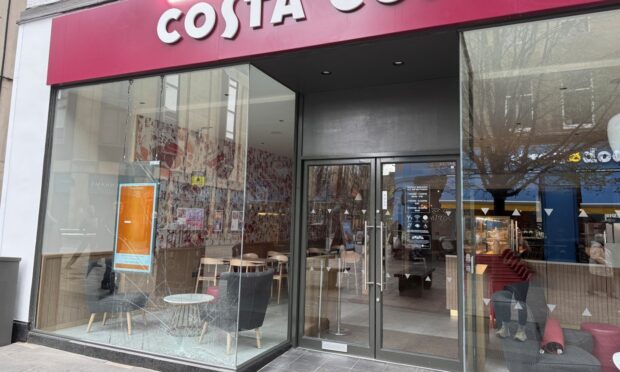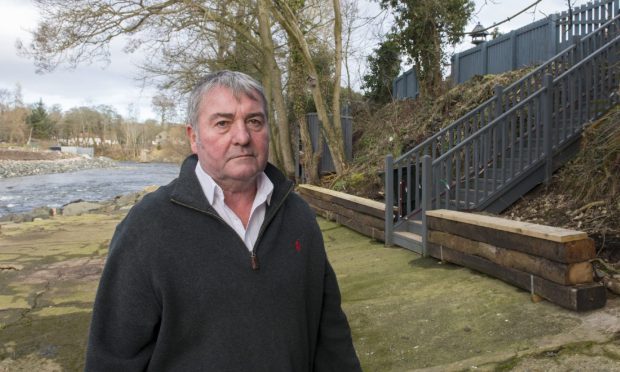As the Royal Scottish Geographical Society (RSGS) marks its first decade in Perth on September 6, Michael Alexander speaks to chief executive Mike Robinson about its relevance in the modern world.
Mike Robinson finds it hard to believe that he has been Royal Scottish Geographical Society chief executive for 10 years.
The 52-year-old father of three has been “fortunate” to oversee a period of significant change in the history of the 134-year-old educational charity – most obviously in its move from Glasgow to Perth a decade ago this week, in securing the funding to create a vibrant visitor centre at the historic Fair Maid’s House, and injecting “vigour and modern purpose” into every aspect of the society’s work.
Mike says: “It is perhaps testament to the variety of the role and to the critical relevance of geography, that I cannot think of any period during my tenure when we have not been busy.
“In this decade, I have had the great joy and privilege of watching my children grow from wee boys to young men, and at the same time, to witness the RSGS grow in confidence, ambition and stature.
“For a small charity, we get a lot done, and continually punch well above our weight, and it is gratifying to see how much people are beginning to value and recognise our work.
“Whether it is the quality of our public talks and events, intelligence of our magazine, friendliness of our staff and volunteers, or innovation of our projects, we are clearly making an impact.”
However, as the RSGS marks its first decade in Perth with the launch of a month long celebratory exhibition at its headquarters on Thursday September 6, Mike says that, more than anything, it is the “profile, ambition and credibility” of the society’s work which has seen the greatest change.
“This is perhaps best epitomised by the introduction and progress of The Geographer magazine, which has developed a strong reputation with a wide range of audiences – as an independent, intelligent, informative source of geographical insight,” he adds.
“In addition we have successfully built bridges between sectors, by providing perspectives from across business, academia, public and government bodies, and NGOs and the wider geographical community.
“As a result, the RSGS has become recognised as a respected adviser and trusted commentator on a wide range of current issues, and we are increasingly sought out to contribute to national policy and to convene meetings and discussions.
“In the last 10 years, we have also streamlined the governance structures and constitution, fought for geography and earth sciences in schools and employed two excellent education officers and rebranded and developed our media and social media profiles.”
Mr Robinson started his career with Unilever. His background thereafter was mainly in the environmental charity sector. He did 10 years with the RSPB and five years with the Royal Botanic Garden Edinburgh, mostly working in project management.
He had worked with the RSGS to co-promote a series of talks on climate change and had brought over a tribal chief from the Amazon to talk about the impact of gold mining.
When the RSGS chief executive job came up it appealed to him by its nature.
But having commuted to Edinburgh for the best part of 20 years by this stage and with a young family, he was also attracted by the ability to work closer to home.
“The truth is that when I took the RSGS over it was struggling,” says Mike, who adds that the society wanted to put down new roots after its 15-year post-Edinburgh residence at Strathclyde University in Glasgow came to an end.
“I was definitely brought in to give it a new lease of life really.
“Probably the most significant thing is that I’ve turned what was becoming a historical society into a geographical one.
“We’ve taken the best of our history and used that to reinforce the importance of what we do now.
“I think that’s really been the key. We’ve been ambitious for the organisation.
“We’ve had some of the greatest names in science and exploration of the last 130 years involved in the society and I wanted to carry on that tradition. I didn’t want to settle for anything less than that.
“For a very small organisation we really punch well above our weight.
“We are very fortunate with the people that we know and the contacts and the networks that we’ve inherited but also created as well.”
With 3000 members, and membership “growing steadily”, the varied programme of talks over the past 10 years have continued to raise the profile of the independent charity.
And it’s the everyday relevance of geography in everyday life that will be at the heart of the society in the years ahead.
“Our role is ultimately to increase the profile and regard for geographical education and understanding in Scotland, and through that to encourage better decision making,” he says.
“It is also to increase Scotland’s standing in informing and resolving geographical issues globally. And it is to share Scotland’s expertise with the world.
“By doing all of this, we hope we are playing our small part in inspiring a better, more geographically literate world.”
